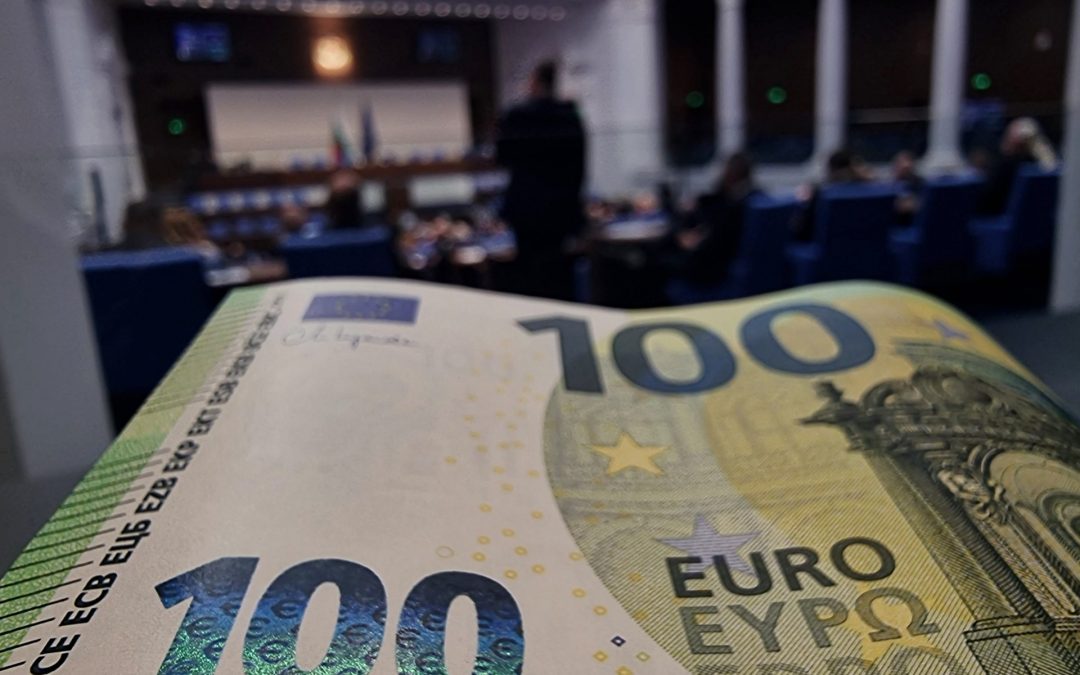SOFIA – The National Assembly of Bulgaria has finally adopted the Law on the Introduction of the Euro in the country, which regulates the principles, rules, and procedures for the introduction of the European currency.
The law does not specify a specific date for the introduction of the euro or the official exchange rate of the leva to the euro. These will be determined by the Council of the European Union (EU) with a unanimous decision of the member states whose currency unit is the euro, and Bulgaria, as stated in the law.
The Parliament has approved the introduction of a so-called dual pricing period, during which prices and other monetary amounts for payment will be displayed both in leva and in euros. A “dual circulation period of leva and euro” is also introduced.
The National Assembly decided that the Bulgarian National Bank (BNB) will exchange banknotes and coins from leva to euros free of charge, without quantity limitation, and without time limitation at the official exchange rate.
The adopted law also regulates the rules related to the adaptation of information systems for working with euros, as well as the adaptation of registers, accounting documents, and other documents to the euro.
Recently, the rating agency Scope Ratings announced that it expects Bulgaria to join the Eurozone and adopt the euro as its local currency by 2026 at the latest, after the initial target of January 2024 and the updated target of January 2025 could not be met, partly due to inflationary developments. The Berlin-based agency, recognized by the EU and European Central Bank (ECB) as an external credit assessment institution, announced that it maintains Bulgaria’s credit rating at “BBB+” with a positive outlook in local and foreign currency.
Bulgaria does not meet only the price stability criterion to become a member of the Eurozone, as noted in the convergence reports presented in June by the ECB and the European Commission (EC). On July 26, the National Assembly, with 118 votes “for”, 44 against, and 13 abstained, adopted a decision to accelerate and complete the process of practical preparation for the adoption of the euro in the Republic of Bulgaria. It is envisaged that the Council of Ministers, at the proposal of the Ministry of Finance, will request the preparation of extraordinary convergence reports from the EC and ECB no later than two weeks after Bulgaria meets the price stability criterion. (August 8, 2024)
 go to the original language article
go to the original language article
